How to Get a Mortgage with a Chapter 13 Bankruptcy in Georgia with Low Credit: A Comprehensive Guide for 2025
Purchasing a home after filing for Chapter 13 bankruptcy can feel like an impossible task, especially when combined with low credit. However, it’s not as difficult as it seems, especially for Georgia residents. While Chapter 13 bankruptcy can stay on your credit report for up to 7 years, it doesn’t necessarily prevent you from qualifying for a mortgage. With the right guidance, you can secure a mortgage and achieve your dream of homeownership—even with a recent Chapter 13 bankruptcy and low credit.
In Georgia, where housing markets in cities like Atlanta, Augusta, and Savannah are booming, many people are successfully purchasing homes after a Chapter 13 bankruptcy. This detailed guide will explain everything you need to know about obtaining a mortgage in Georgia under these circumstances, including loan options, requirements, and helpful tips.
Table of Contents
1.What is Chapter 13 Bankruptcy?
2.How Does Chapter 13 Bankruptcy Affect Your Credit?
3.Can You Get a Mortgage After a Chapter 13 Bankruptcy in Georgia?
4.Key Factors Lenders Look for When Approving a Mortgage After Chapter 13
5.Types of Mortgages Available After Chapter 13 Bankruptcy in Georgia
6.Steps to Qualify for a Mortgage After Chapter 13 Bankruptcy with Low Credit in Georgia
7.How to Improve Your Credit to Qualify for a Mortgage
8.Finding the Right Lender in Georgia
9.The Mortgage Application Process After Chapter 13 Bankruptcy in Georgia
10.Common Challenges When Getting a Mortgage After Chapter 13 Bankruptcy
11.Conclusion: Getting a Mortgage with Chapter 13 Bankruptcy in Georgia in 2025
What is Chapter 13 Bankruptcy?
Chapter 13 bankruptcy, also known as a reorganization bankruptcy, allows individuals with a steady income to create a repayment plan to pay back their debts over a period of three to five years. Unlike Chapter 7 bankruptcy, which wipes out most of your unsecured debts, Chapter 13 allows you to retain your assets, such as your home and car, while making monthly payments to a bankruptcy trustee.
After the repayment plan is completed, any remaining eligible debt may be discharged. For those in Georgia, filing for Chapter 13 can be a way to regain financial stability, but it does create challenges when trying to secure future credit, such as a mortgage.
How Does Chapter 13 Bankruptcy Affect Your Credit?
A Chapter 13 bankruptcy stays on your credit report for up to 7 years from the date of filing. While the bankruptcy itself has a significant negative impact on your credit score, it’s important to remember that your credit will gradually improve as you complete the repayment plan.
•Initial Credit Impact: Immediately following a Chapter 13 filing, your credit score will drop, potentially by as much as 100–200 points. This can lower your chances of being approved for loans and credit cards.
•Post-Bankruptcy: If you make all payments as required by the court and show financial responsibility, your credit score can begin to recover. Additionally, many lenders view applicants more favorably if they have a record of successfully completing a Chapter 13 plan.
Although it may take time, a high credit score is not necessarily required to obtain a mortgage. Many people qualify for a mortgage after Chapter 13 with lower credit scores, especially if they meet certain other criteria.
Can You Get a Mortgage After a Chapter 13 Bankruptcy in Georgia?
Yes, it is absolutely possible to get a mortgage in Georgia after filing for Chapter 13 bankruptcy. The key factors that will affect your eligibility include how long it’s been since you filed, your credit score, your payment history since filing, and your ability to demonstrate a stable income.
General Requirements for Mortgage Approval After Chapter 13 Bankruptcy:
•Time Since Filing: Most mortgage programs require that at least 1-2 years have passed since your Chapter 13 bankruptcy was discharged before you can apply for a mortgage.
•Successful Repayment: Lenders will look favorably upon applicants who have successfully made their Chapter 13 payments on time for a minimum of 12 months or more.
•Credit Score: While your credit score may still be low post-bankruptcy, some lenders offer specialized programs for those with lower scores. Many lenders will work with individuals whose scores are between 580-620.
•Stable Income: You must have a stable and reliable income to qualify for a mortgage. Lenders will want to see that you can make monthly mortgage payments and meet your current financial obligations.
Key Factors Lenders Look for When Approving a Mortgage After Chapter 13
When applying for a mortgage post-Chapter 13 bankruptcy, lenders will evaluate several important factors beyond your credit score:
1. Completion of Chapter 13 Plan
To be eligible for a mortgage, you typically need to have completed at least 12 months of your Chapter 13 repayment plan. This demonstrates to lenders that you are financially responsible and capable of handling regular payments.
2. Payment History
Your payment history during and after Chapter 13 is crucial. Lenders prefer applicants who have made timely payments throughout the bankruptcy period. A consistent payment history can improve your chances of approval.
3. Debt-to-Income Ratio (DTI)
Lenders assess your DTI ratio to determine how much of your monthly income goes toward paying off debt. The lower your DTI, the better your chances of getting approved. Ideally, a DTI ratio of 43% or lower is preferable for most mortgage programs.
4. Down Payment
While many mortgage programs require a down payment, there are options available with lower down payments or no down payment, such as FHA loans or VA loans. A larger down payment may improve your chances of approval if you have low credit.
Types of Mortgages Available After Chapter 13 Bankruptcy in Georgia
Several types of mortgages may be available to you after Chapter 13 bankruptcy. Here are some of the most common options:
1. FHA Loans
The Federal Housing Administration (FHA) insures loans for borrowers with low credit scores and provides more flexibility for those with a bankruptcy history. The general guideline for FHA loans is that you must wait 1-2 years after Chapter 13 discharge before applying. FHA loans require a down payment of at least 3.5%, and borrowers with credit scores as low as 580 can qualify.
•Learn more about FHA loans at HUD.gov.
2. VA Loans
If you’re a veteran, a VA loan may be a great option. These loans don’t require a down payment, and they’re more lenient with credit scores. You typically need to wait 1-2 years after Chapter 13 discharge, but the specific guidelines can vary depending on the lender.
•Check out more about VA loans at Low Credit VA mortgage.
3. Conventional Loans
Securing a conventional loan after Chapter 13 bankruptcy is more challenging, but it’s possible with a good payment history and sufficient income. Most lenders require a minimum of 4 years after discharge, although some may be willing to approve applicants who have successfully completed their Chapter 13 repayment plan.
•Learn more about conventional loans at Fannie Mae.
4. Subprime Mortgages
If you have low credit and limited options, a subprime mortgage may be available. Subprime lenders offer mortgages to people with low credit scores, but they typically come with higher interest rates and less favorable terms. These loans should be used cautiously due to their cost.
Steps to Qualify for a Mortgage After Chapter 13 Bankruptcy with Low Credit in Georgia
1.Complete Your Chapter 13 Repayment Plan: Ensure you have made at least 12 months of consistent payments under your Chapter 13 repayment plan.
2.Check Your Credit Score: Monitor your credit and take steps to improve it. While the bankruptcy may have caused a temporary drop, there are strategies to boost your credit score.
3.Save for a Down Payment: If possible, save for a down payment to help your mortgage application. A larger down payment can make you a more attractive candidate for lenders.
4.Get Pre-Approved: Contact a mortgage lender to get pre-approved for a loan. This will give you an idea of what loan types and terms you may qualify for.
5.Work with a Specialized Lender: Some lenders specialize in working with individuals who have gone through Chapter 13 bankruptcy. They may offer more flexible terms and a better chance of approval.
How to Improve Your Credit to Qualify for a Mortgage
Although your credit may still be impacted by Chapter 13, there are several ways you can improve it before applying for a mortgage:
•Pay bills on time: Timely payments on all your credit accounts are crucial for improving your score.
•Reduce credit card debt: Pay down outstanding credit card balances to below 30% of your credit limit.
•Check your credit report: Dispute any errors on your credit report that may be impacting your score.
Finding the Right Lender in Georgia
Not all lenders are the same when it comes to working with post-bankruptcy borrowers. Some lenders specialize in mortgages for people with low credit scores or bankruptcy histories. Here are some resources to help you find the right lender in Georgia:
The Mortgage Application Process After Chapter 13 Bankruptcy in Georgia
The mortgage application process after Chapter 13 bankruptcy involves several steps, including obtaining pre-approval, submitting documentation, and undergoing a property appraisal. Be prepared to provide financial statements, tax returns, and proof of income.
Common Challenges When Getting a Mortgage After Chapter 13 Bankruptcy
•Higher interest rates: Due to low credit scores, you may be offered higher interest rates, which can increase monthly payments.
•Length of time since bankruptcy discharge: Some mortgage programs may require a longer waiting period after Chapter 13 discharge.
•Down payment requirements: With low credit, you may need to provide a larger down payment.
Conclusion: Getting a Mortgage with Chapter 13 Bankruptcy in Georgia in 2025
Purchasing a home after filing for Chapter 13 bankruptcy in Georgia is entirely possible, even with low credit. By focusing on improving your credit, selecting the right mortgage program, and working with lenders who specialize in post-bankruptcy mortgages, you can take the necessary steps toward homeownership.
For more information on mortgage options and eligibility in Georgia, check out the following resources:
By being proactive and prepared, you can secure a mortgage after Chapter 13 bankruptcy and move toward your financial future with confidence.

